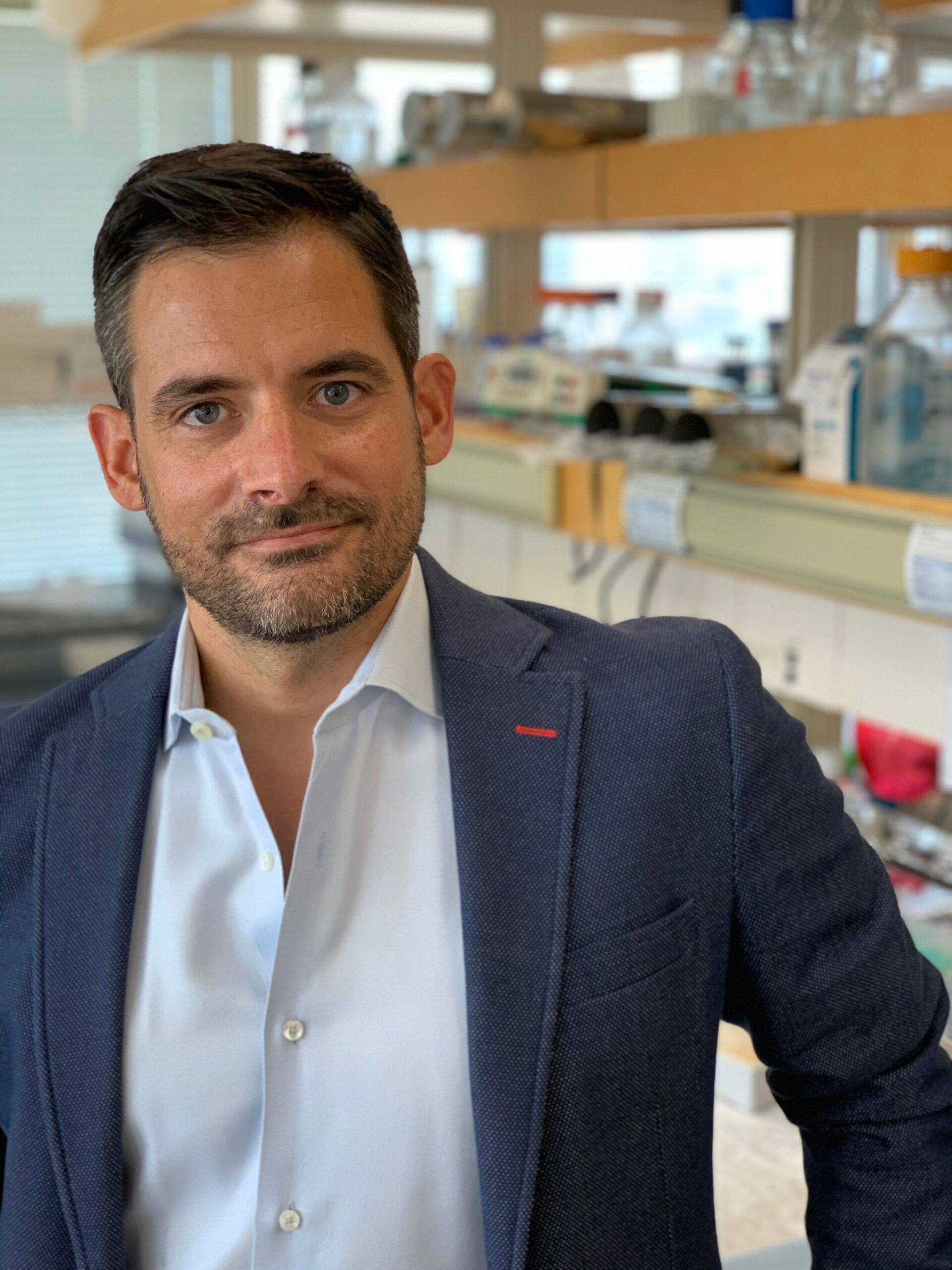Project title: Establishing & characterizing a pancreatic neuroendocrine tumor mouse model with humanized telomeres
Daniel Schramek, PhD Lunenfeld-Tanenbaum Research Institute, part of Sinai Health

- Status: Active
- Year(s): 2023
- Grant Type: Investigator
- Research Type: Basic
- Primary Tumor Site: Pancreas
Project Description:
One of the challenges in studying pancreatic neuroendocrine tumors (PNETs) is that there hasn’t been a good animal model to test new treatments. Dr. Schramek and his team have developed a special mouse that can develop PNETs just like humans do. This mouse has the same genetic changes that are seen in human PNETs, and they can control when these changes happen. This will allow them to study how the cancer develops and which genes trigger progression. They will also use this mouse model to identify new drug targets.
What critical NET problem will you try to solve through your research?
Through genetic engineering, Dr. Schramek and colleagues will create and evaluate the first mouse model of pancreatic neuroendocrine cancer that recapitulates the genetic abnormalities observed in patients with aggressive tumors who also have poor prognosis.
Why is this important?
The mouse model will enable the team to gain insights into the origin and progression of the disease to help develop new and more effective treatments.
How might your research improve the diagnosis and/or treatment of NETs?
Currently, no mouse model of pancreatic neuroendocrine cancer exists, and Dr. Schramek hopes that their flexible design will allow them to engineer and study several genes implicated in the development of this cancer type. Ultimately, they hope to use these mouse models to design and test novel therapeutic strategies.
What is your next step?
Once they have established faithful pancreatic neuroendocrine models, they will use those models to perform high throughput genetic and chemical screens as a first step towards the development of novel medicines that can help combat this disease.
Additional Details
- City: Toronto
- Country: Canada
- Grant Duration: 2
DISCLAIMER
NETRF funds laboratory research to understand the development of neuroendocrine tumors and translational research to explore new concepts in treatment. Research grant descriptions and research updates from NETRF are not intended to serve as medical advice. It can take years for research discoveries to be fully validated and approved for patient care. Always consult your health care providers about your treatment options.
